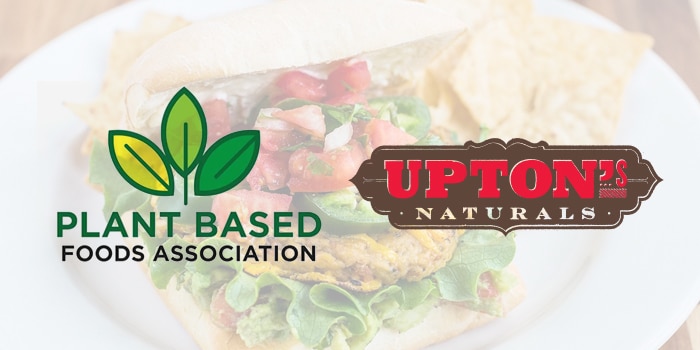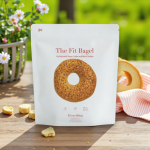Upton’s & PBFA Sue Mississippi Over ‘Ridiculous’ Labeling Law

Just in time for the Fourth of July, Upton’s Naturals and The Plant Based Food Association (PBFA) are asserting their own independence against the state of Mississippi with a lawsuit to push back against new labeling laws.
Earlier this year the Mississippi legislature passed what was known as the “Fake Meat Bill” banning cultured meat, insect-based and plant-based food companies from using “meat product terms” (such as hamburger, sausage, bacon and meatballs) on their products. The law does not impact brands using terms typically found on chicken products (such as tenders or nuggets).
Today, a day after the law went into effect, the PBFA and Upton’s, which are represented by the Institute for Justice (IJ), filed a lawsuit in the U.S. District Court for the Southern District of Mississippi in an attempt to stop the law from being enforced. The suit alleges that the new law violates the First Amendment rights of Upton’s and the member companies of the PBFA and would cause these companies harm.
Mississippi already has laws protecting consumers from misleading claims, the IJ states, and the banned meat product terms actually provide clarification, not confusion, to consumers. Furthermore all affected brands clearly communicate their vegan nature and seek to highlight, not hide, that they are meatless. The reason for the bill, Justin Pearson, managing attorney of the IJ Florida Office and counsel for the plaintiffs, told NOSH, is not actual consumer concern but rather legislative pandering to special interest groups.
“An industry group, in this case the meat industry, said that even though misleading speech is already prohibited and there’s no problem, we need the government to ban our competitors from using these words,” Pearson said. “It’s up to customers to decide what food they want to eat… It’s not the role of government to make that choice for them and it’s especially not the role of government to do the bidding of one special interest group to the detriment of consumers and competitors.”
Earlier this year the North American Meat Association, the Mississippi Cattlemen’s Association and the Mississippi Farm Bureau all advocated in support of the Fake Meat Bill. According to the suit, representatives from the organizations stated that unless the bill was passed, the meat industry would be affected by the competition from plant-based options, citing the market share losses that fluid milk companies have faced.
State legislators, the suit adds, voted for the bill because industry groups asked them to, with Mississippi State Rep. Bill Pigot, for example, stated that he introduced the bill only after he was contacted by a pro-beef organization.
Research firm Mintel recently found that more than two thirds (67%) of Americans “agree that meat is essential to a balanced diet,” and just over half (51%) believe “a meal is not complete without meat.” For many large meat companies, such as Perdue, Tyson, Nestle and Conagra, the decision has been to offer plant-based options alongside their traditional alternatives, in an attempt to catch all consumers. But farmers who raise cattle are still concerned.
If the bill goes into effect, brands will have to redesign their labels or pull out of distribution in Mississippi. The resulting packaging would not only result in lower sales for brands, but also confuse consumers, said Daniel Staackmann, founder and president of Upton’s Naturals — an issue he’s seen firsthand. When Upton’s launched its seitan bacon almost a decade ago, Staackman told NOSH, the company tried to use terms other than “bacon” but found that consumers were confused as to what the product was and how it could be used.
He added that it seems unfair that the law doesn’t seem to treat all products the same — while his seitan bacon wouldn’t comply, turkey bacon, lamb bacon or beef bacon would all be acceptable.
“It’s just ridiculous,” Staackmann said. “Perhaps the city of Hamburg should sue the meat industry in the United States for using [that term]?”
On behalf of the PBFA and Upton’s, the IJ is most immediately seeking a preliminary injunction prohibiting the state from enforcing the law. It also is seeking permanent relief in the form of a declaratory judgement that the law is unconstitutional, a permanent injunction to stop the state from ever enforcing the law and a $1 payment of nominal damages to help establish the the bill was unconstitutional and caused harm.
Currently the state of Missouri is engaged in another litigation battle with the PBFA and a fellow member company, Tofurky. If that case is settled, Pearson said, it would not change the outcome of the Mississippi case through binding precedent, but rather set persuasive precedent that would be taken into account.
But there’s more at stake here then simply words, Pearson told NOSH.
“Customers seek out these foods because they are vegan. Mississippi is creating confusion where none existed, Pearson said. “When you take away words and ban words that customers understand, you hurt customers — you don’t help them.”
















